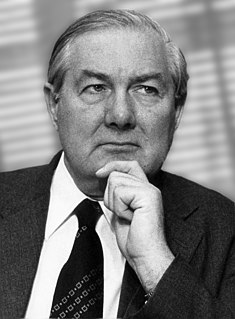A Quote by Caroline Lucas
Britain is a parliamentary democracy. Power rests in Parliament, in the House of Commons, and the government - the executive - has to seek the consent of MPs for its legislation.
Related Quotes
Democracy, finally, rests on a higher power than Parliament. It rests on an informed and cultivated and alert public opinion. The Members of Parliament are only representatives of the citizens. They cannot represent apathy and indifference. They can play the part allotted to them only if they represent intelligence and public spiritness.
There should be some other provisions in the Constitution whereby if the Government is not functioning well, it can be dealt with. In a parliamentary democracy, this should be done only by Parliament. The prime minister should be answerable only to Parliament and it should only be Parliament that can install him or remove him.
The principle of Parliamentary sovereignty means neither more nor less than this, namely, that Parliament thus defined has, under the English constitution, the right to make or unmake any law whatever; and, further, that no person or body is recognised by the law of England as having a right to override or set aside the legislation of Parliament.
Parliament is for discussion. Parliament is to show dissent. Parliament is to give an argument for one's opposition, to present an argument when they support. To uphold this basic spirit of Parliament, is the responsibility of every person who values democracy. It is the responsibility of those present in the Parliament and those outside. It is the responsibility of those in power and those not in power. This is a matter of spirit and it should be followed.
It is quite clear from what has been said and written that, time after time after time, there has been a conspiracy between the Conservative Front Bench in this House and the inbuilt Conservative majority in the House of Lords to defeat legislation that has passed through the House of Commons... I warn the House of Lords of the consequences... it is our strong view that the House of Lords should recall that its role is not that of a wrecking chamber, but of a revising chamber. In recent weeks, it has been wrecking legislation passed by this House.

































